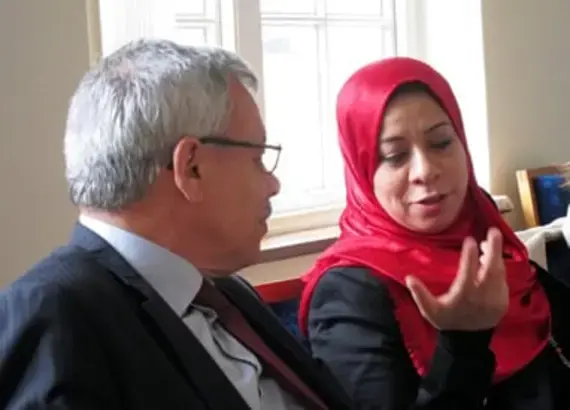
Success Story
Tunisians Study Examples of Coalition Governing
In the wake of last October’s constituent assembly elections in Tunisia, a number of political parties have come together in various combinations to form a governing coalition and a workable opposition. Such coalition-building is new to Tunisia, where, until the ouster last year of long-time President Zine El Abidine Ben Ali, one-party rule was the norm.
To help Tunisian political leaders learn more about forming coalitions, a delegation of eight leading members of four political parties and coalitions representing both majority and opposition participated in an NDI-led study mission in June to Dublin, Ireland and Brussels, Belgium – two places where coalitions are the norm.
Through a series of encounters with senior politicians from Irish and Belgian political parties, as well as political groups in the European Parliament, participants explored various models for improving their parties’ abilities to form and maintain effective coalitions.
European party leaders briefed the delegation on topics such as coalition negotiations and party mergers, coalition management and dispute resolution, and the role of minority parliamentary groups. Speakers included ministers, members of parliament, parliamentary group leaders, senior advisors to national leaders, party leaders, party spokesmen and party strategists.
"A coalition is not an objective in and of itself, but instead aims to achieve consensus and compromises."
— Belgian Senator Hassan Bousetta
The Irish, Belgian and EU experiences each offered a different model for Tunisian delegates to consider. In Ireland, where political coalitions have governed the country since 1981, the routine experience of cross-ideological coalition-building held particular relevance for Tunisia, where parties seem likely to govern in coalition — and form opposition coalitions — for some time to come. A strategist from the Fine Gael Party, currently in a governing coalition with the Labour Party, advised the delegation how “people who are opposed to each other can do well in government together,” and that “democracy and coalitions are based on compromise.”
This view was reinforced in Belgium by Senator Hassan Bousetta, who explained that, “a coalition is not an objective in and of itself, but instead aims to achieve consensus and compromises.” Tunisians learned about the complexity of managing Belgium’s diverse communities and the challenges in forming coalitions during the country’s 2011 political crisis, when it took a record 541 days to form a government following 2010 parliamentary elections.
Belgian political parties explained how their decisions to enter coalitions are approved by members—a difference from Tunisia, where many grassroots party members were left out of such decisions. A visit to the European Parliament shed light on how political groups create new coalitions for each vote, and how members balance allegiances to their political group, national party and country.
“When we return, we will begin pursuing new alliances,” one of the Tunisian delegation members said. “We need to all work together,” replied another, echoing Irish ministers from opposing parties who spoke of their success governing together. The mission provided an opportunity for party members from both the majority and opposition, representing a wide range of ideologies and views on the transition, to interact in a more relaxed setting and witness how European parties have established trust in coalitions and pursued compromise.
Related:
Published July 20, 2012



